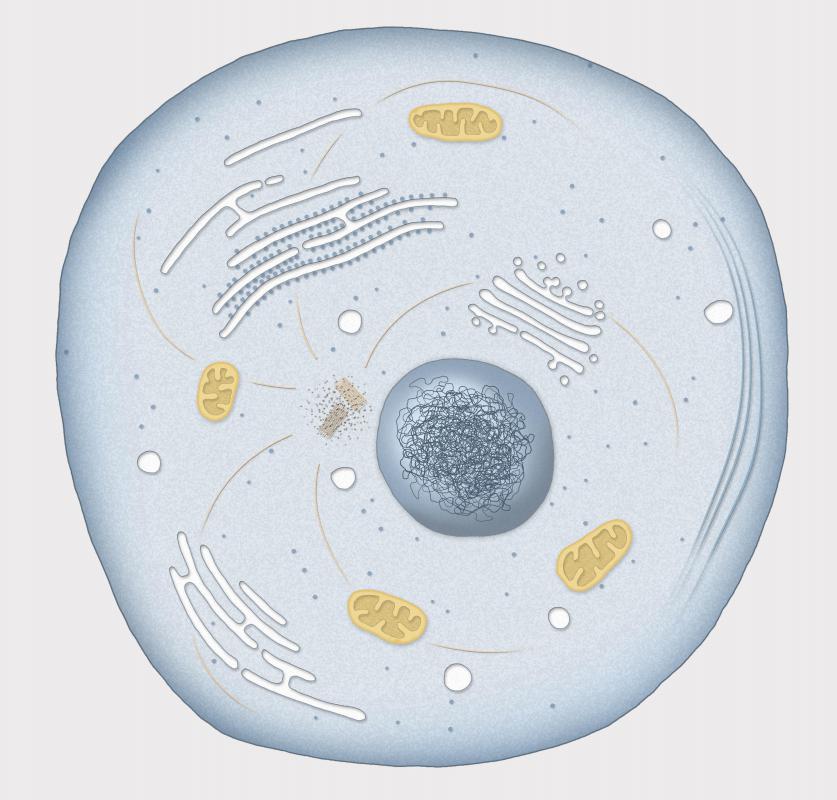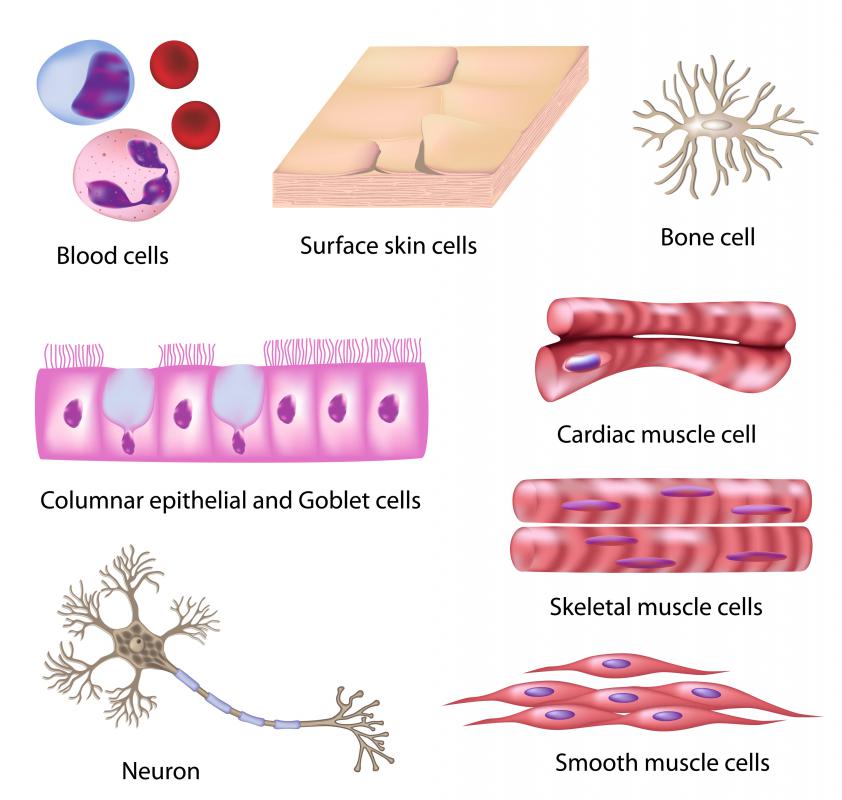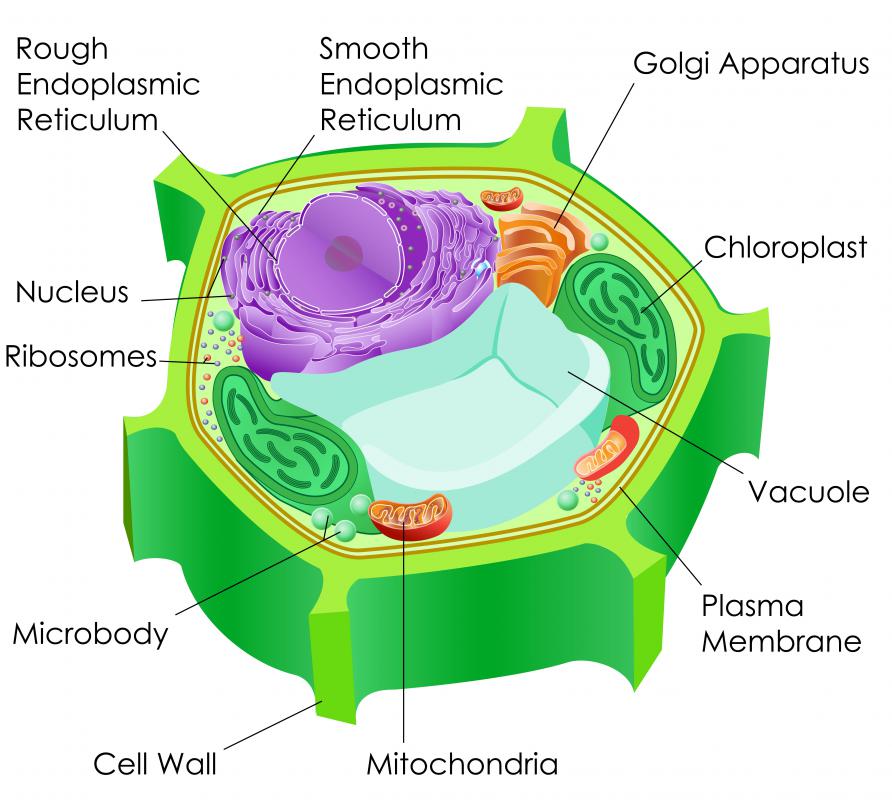At WiseGEEK, we're committed to delivering accurate, trustworthy information. Our expert-authored content is rigorously fact-checked and sourced from credible authorities. Discover how we uphold the highest standards in providing you with reliable knowledge.
What is Cell Physiology?
Cell physiology is a field of biology which focuses on studying the function of cells, and how cells interact with each other and with the larger organism they inhabit. Researchers in this field use a variety of tools to observe cells and learn more about their structure and function, such as microscopes and more advanced imaging equipment to see the structures inside of cells in greater detail. Many basic cell biology classes cover some cell physiology, and students can also take specific courses in this branch of biology to get more detailed information.
Each cell within an organism is designed to act as an independently functioning unit which supports the larger organism as a whole. Cell physiology looks at the structure of different types of cells, and how cells function. It also looks at how cells come together to create organs and other structures, and how the cells within an organism work together. All of the normal functions of a cell are covered in this field, as are the many different types of cells which can be found in a single organism.

Some examples of topics studied in this field include respiration, digestion, and waste elimination at the cellular level, along with cell membranes, electrical signaling between cells, and the mechanics of specific activities like muscle contractions. The organelles within the cells are also objects of interest, as are their functions, and the variations in organelles between cell types and organisms.

Understanding cell physiology is important to the understanding of larger organisms, as many important activities take place at the cellular level. By studying how cells are supposed to work under normal conditions, researchers can also make it easy to identify errors, problems, and malfunctions when the cells in an organism become abnormal. Identifying abnormalities and their causes can be valuable in the treatment and management of disease, and for the general advancement of biology as a science.

Researchers in this field work in the laboratory environment. They can work for pharmaceutical companies, medical research organizations, universities, and government agencies. Cell physiologists can also opt to specialize in a particular area of interest, such as plant cells, cellular replication, or prokaryotic cells. As with many of the sciences, in order to advance in the field of cell physiology, it is usually necessary to have a master's degree at a minimum, with many researchers holding doctorates along with extensive postdoctoral training.
AS FEATURED ON:
AS FEATURED ON:














Discussion Comments
What is the difference between plant and cell physiology? Obviously, plant physiology is focused on plants, but does that mean cell physiology is focused on humans or animals only? I'm assuming that cell physiology is a generic term for any field that studies cells, but then, what is the term for the field that studies animals at the molecular level?
I'm sure there are subtle differences between each of these things, but I don't know what they are. Hopefully my questions are clear.
@jcraig - Great information. I'd just like to add that whatever major you start with in college does have to be what you finish with. There is always time to experiment with a couple majors and find something you love to do.
I was curious, but would this be the same type of field that works on stem cell research? I know it is a hot issue at the moment, and I have been trying to learn more about it. Personally, I think it sounds like there are a lot of great benefits, but I know a lot of people are morally opposed to it.
@jmc88 - Those are some great questions. It sounds like you have a leg up on a lot of people who graduate from high school and don't really know what they want to do.
When I first started college, I was a molecular and cellular biology major. The majority of the work revolves around being in a lab. I found out pretty quickly, though, that I didn't care for working in a lab all the time, and I decided to study environmental science instead. Some people love lab work, though. You'll figure it out with time.
Besides biology, you will definitely benefit from taking as many math and statistics classes as you can. Chemistry will be critical, too. Like anything else in life, being a good writer will help you out.
If you might be interested in the body as a whole, human physiology might be a good job to look at further. Plant physiology, environmental science, chemistry, and even something like astronomy could be something you would enjoy doing.
We just finished talking about cells in my high school biology class. I think it is very interesting. I have always like science, and I have thought about studying some sort of science field in college. What else would be involved with a job in cell physiology? The article mentions a few careers, but is there anything else that might not have been mentioned?
Obvious biology classes would be important, but what other classes could I take in high school that would help me in college? Last question: are there any other jobs that would be similar to cell physiology that I should look at? I have had a hard time finding a lot of information on what you can do with science degrees.
Post your comments